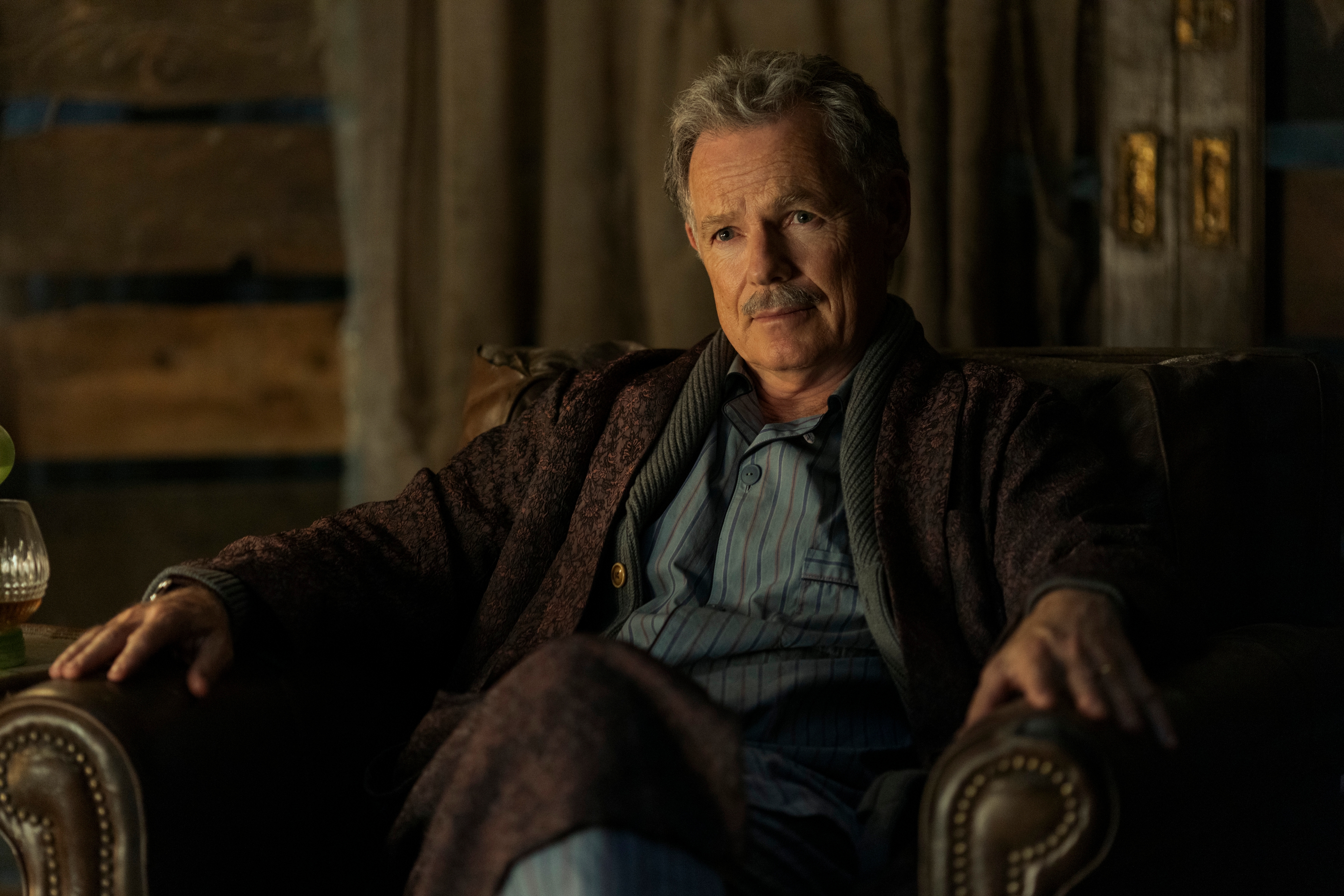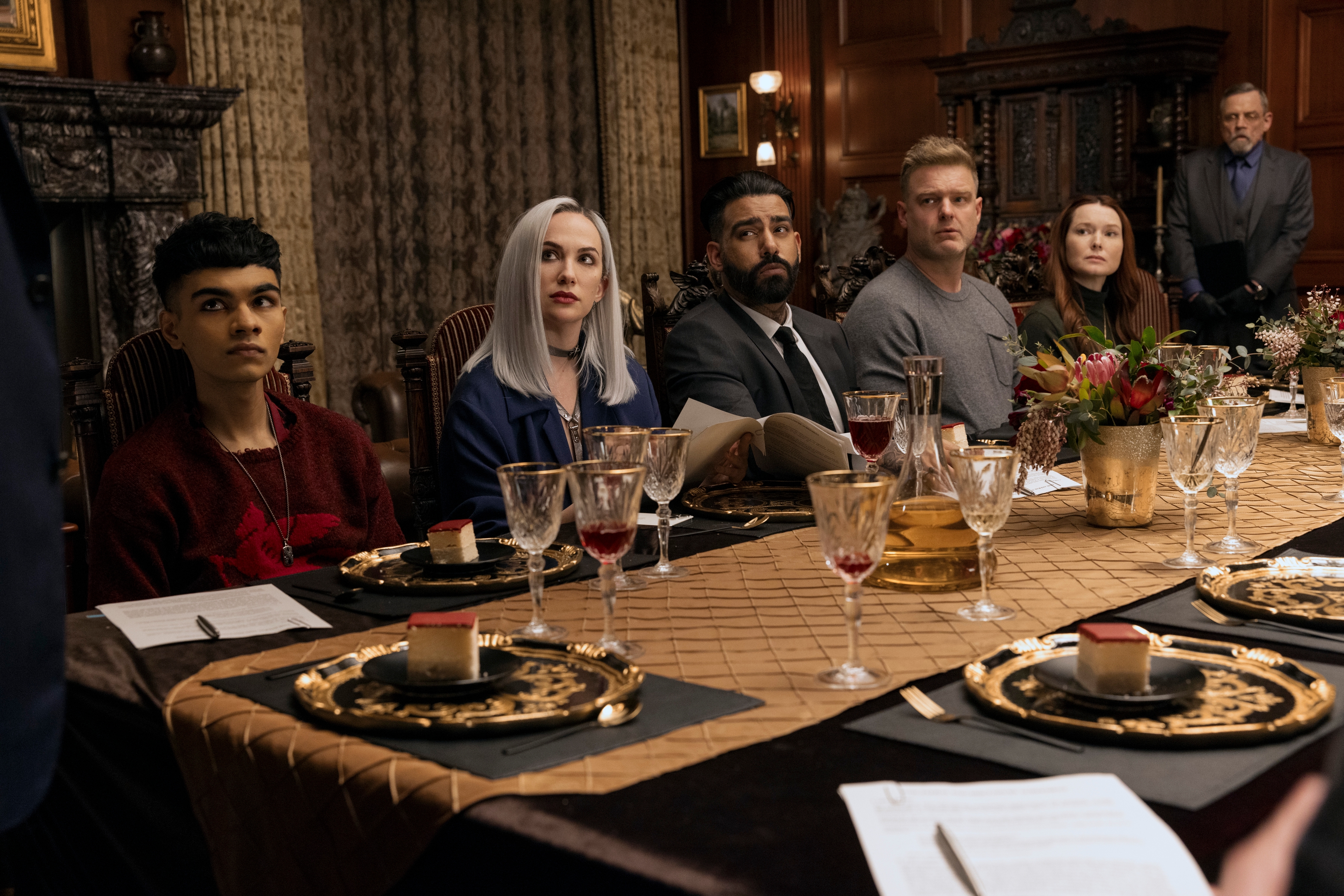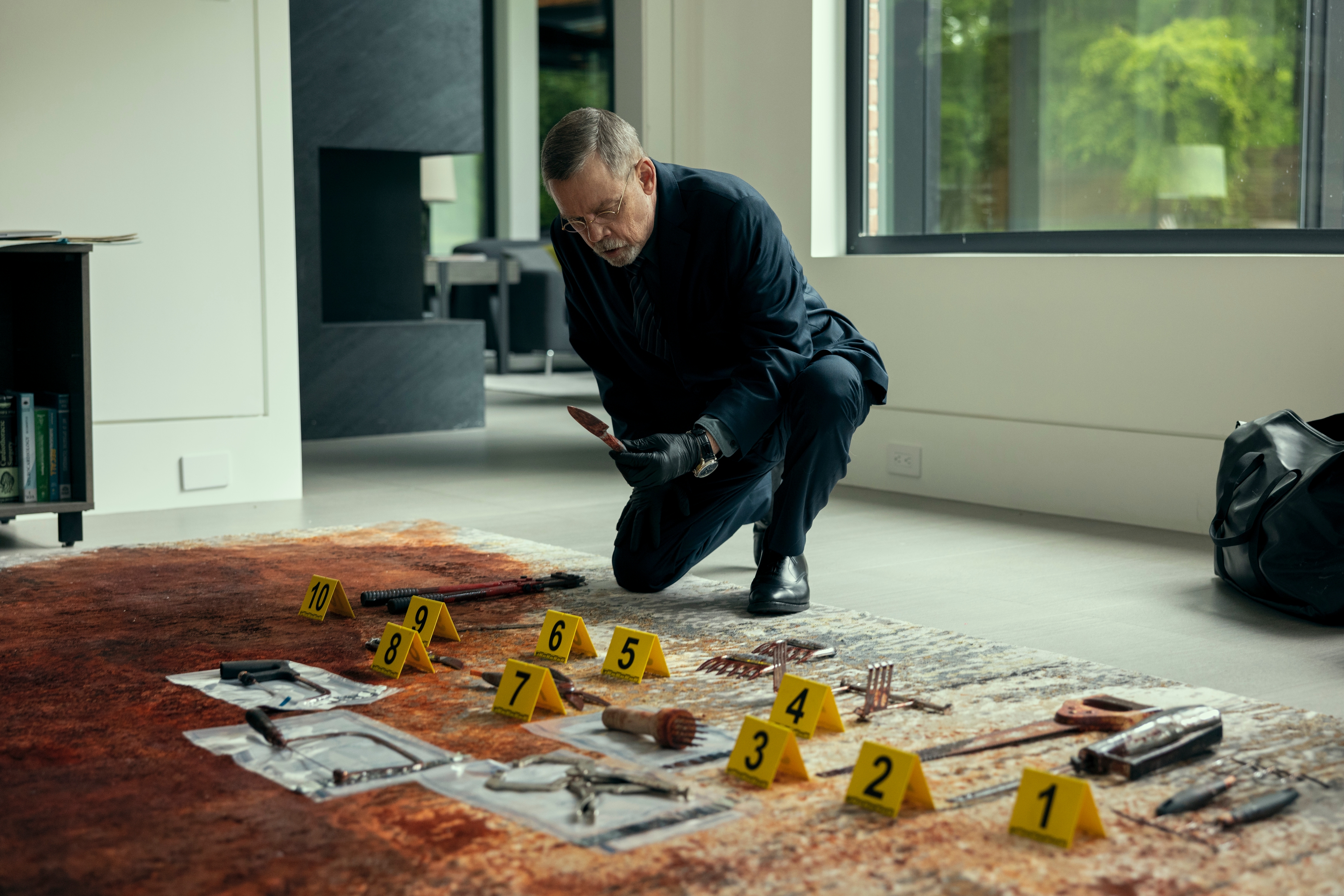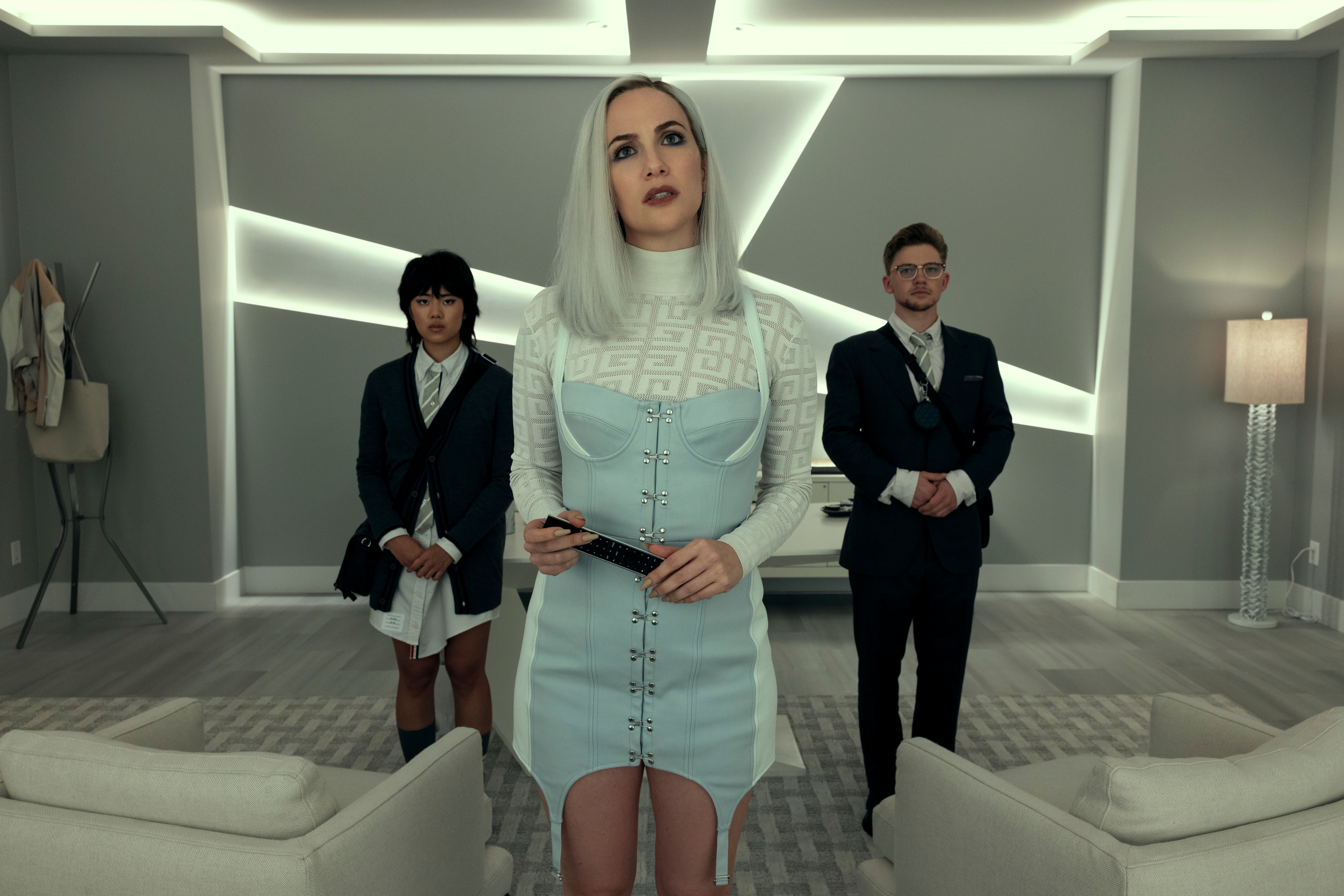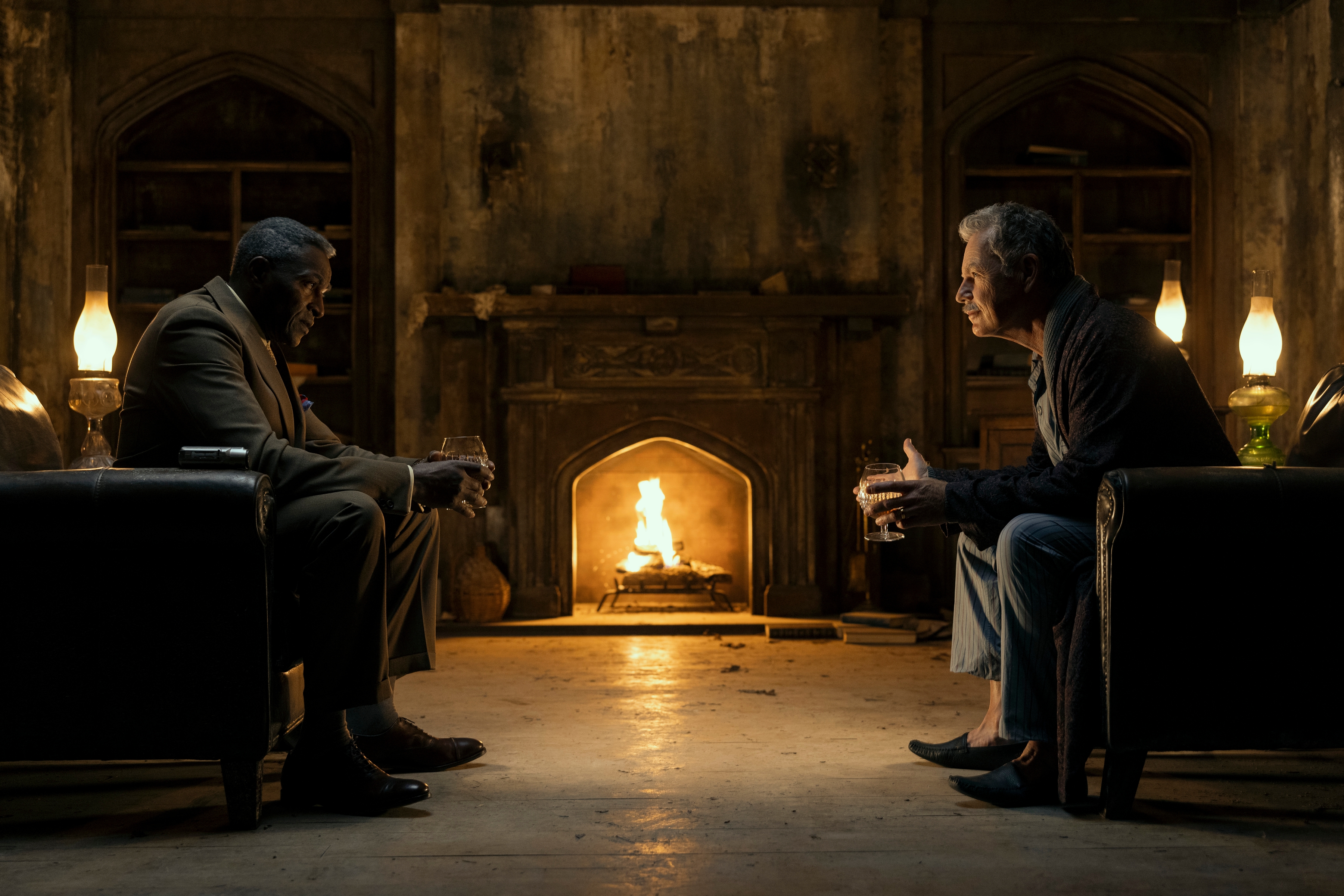‘The Fall of the House of Usher’ Review – Mike Flanagan’s Ambitious Poetic Horror
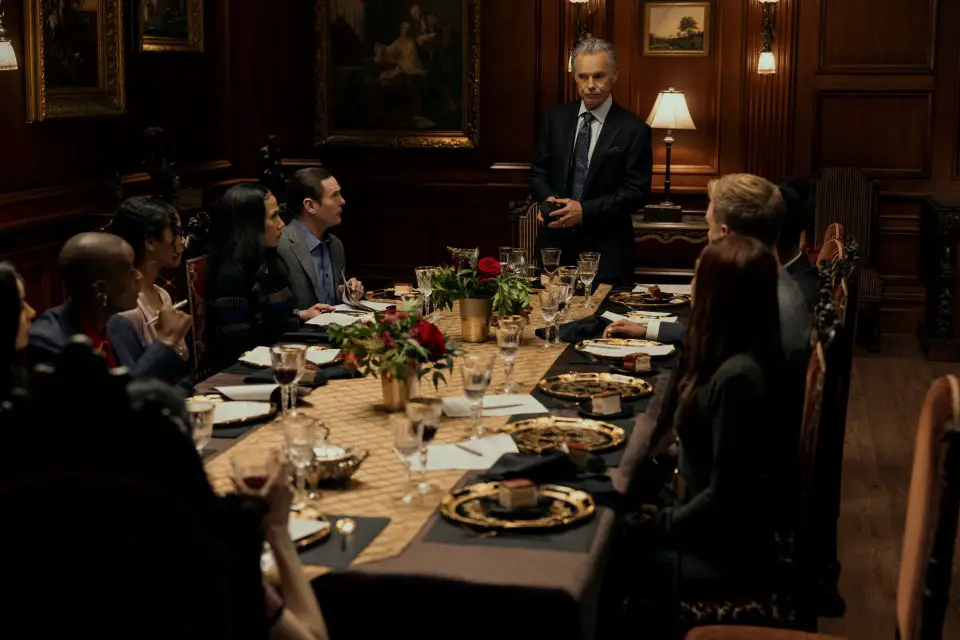
The Fall of the House of Usher is Mike Flanagan’s swan song, his final project in his overall deal with Netflix. Having produced other incredible originals for the streaming service, such as Midnight Mass and The Midnight Club, Flanagan has set his sights on new projects and adaptations in his new deal with Amazon Studios. Before that, though, the writer/director had unfinished business with Netflix— thus, this epic and gothic celebration of the works of Edgar Allen Poe was born. The Fall of the House of Usher’s eight episodes depict precisely what you expect from the title, with each heir to the empire of Roderick Usher (Bruce Greenwood) falling prey to unseen forces.
The series’ intriguing narrative structure reels viewers in immediately from the first episode. Sitting alone in a decrepit house, Greenwood’s Usher recounts the story of his family to police investigator C. Auguste Dupin (Carl Lumbly). At this point in the story, all of Usher’s children have predeceased him, with the tale working backward to show how the CEO of a pharmaceutical powerhouse lost everything. A large portion of the series’ story relies on the acting prowess of Greenwood, and he doesn’t disappoint as the Patriarch of the Usher family.
READ: ‘Loki’ Season 2 Review: “Breathing New Life Into the MCU”
Flanagan’s modern re-imagining of the Edgar Allen Poe story of the same name transforms the Ushers into a modern-day pharmaceutical company named Fortunato. The result of this bold reinvention is the director’s most ambitious project to date— not just because of the modern-day setting, but because of how Flanagan expertly weaves in Edgar Allen Poe’s most famous works, meshing them all into a tragic and macabre story of one twisted family. This bold amalgamation of some iconic literary works only works as well as the cast that brings them to life. Luckily, this ensemble doesn’t disappoint.
Leading the Usher family alongside Roderick is his twin sister Madeline (Mary McDonnell), perhaps the most vicious Usher and the one that sets the family saga in motion. Every actor portraying an Usher in this series is carefully crafted to fit not only into the larger story but also in subplots of their own that, in one way or another, are a twisted re-imagining of Poe’s literary works.
Actors Henry Thomas, T’Nia Miller, Rahul Kohli, Kate Siegel, Samantha Sloyan, and Sauriyan Sapkota, who are all Falanagan alumni, portray the Usher family. Each one is wholly unique, and the dynamic as “bastard” children to Roderick through various lovers and wives makes this unique family even more complicated. Henry Thomas and Samantha Sloyan portrayed Frederick and Tamerlane Usher, Roderick’s eldest son and daughter and considered the only “legitimate” Ushers. Frederick is constantly chastised as the favorite child and kiss-ass of the Usher family, and Samantha is the workaholic looking to make a name for herself.
T’Nia Miller plays the eldest illegitimate child, Victorine, a doctor and surgeon trying to use her Usher name and influence to make considerable advances in the medical field. Rahul Kohli plays addict and eccentric playboy Napoleon “Leo” Usher, and Kate Siegel plays Camille, a spin doctor and public relations mastermind. Last but not least is the youngest Usher child, Prospero “Perry” Usher, a delinquent and party animal with an unlimited budget. Each character leaves their bloody mark on the series thanks to the incredible actors bringing them to life. Frederick’s daughter Lenore (Kyleigh Curran) joins in as part of the extended family, the sole light and innocence of the Ushers, and Arthur Pym (Mark Hamill), the family lawyer/fixer who always demands your full attention when sharing a scene with any given cast member.
Seriously, Hamill as Pym may be my favorite part of the series, and if there’s any reason to watch, it’s because of him. While the Usher family prey on each other’s downfall and succumb to their greed, Pym works in the shadows, bringing an uneasy feeling when he’s on-screen and feeling like an enigma in the best way possible. Hamill hasn’t had the chance to be this stoic and mysterious in a long time, and watching his character fight the inevitable feels like a good encapsulation of the show.
Given that this series is a love letter to everything Edgar Allen Poe, it should surprise no one that this show is dark. Roderick’s confession to Dupin comes at the heels of his entire family dying, each in a gruesome way. It’s an incredible way to hook viewers into the show as Roderick spins his tale. Mike Flanagan shares directing duties with Michael Fimongari, and the two manage to make a modern-day city feel incredibly gothic thanks to the show’s cinematography and color palette.
However, one big pitfall of the series is how it struggles under the weight of its sheer amount of story. On top of Roderick’s family dying, the fall of his pharmaceutical company, and his confession/conversation with Dupin in his childhood home, which is the series’ throughline, we’re also given flashbacks. In these flashbacks, we see a young Roderick and Madeline, played by Zach Gilford and Willa Fitzgerald, as they rise to power at Fortunato, bury some bodies, and make unsavory deals.
There’s a lot of ground to cover in the series eight episodes, and Flanagan and co. Do their best. Unfortunately, The Fall of the House of Usher can sometimes meander on its way to the inevitably horrific conclusion. With this much story and so many characters needing closure, it’s bound to feel a little bloated and sometimes rushed. That’s also why Flanagan’s flare for dramatic dialogues doesn’t hit as hard this time around when compared to his previous Netflix productions.
However, that doesn’t mean the series isn’t a compelling watch. The powerhouse performances from the ensemble are more than worth the sometimes cluttered story. Especially that of actress Carla Gugino, who plays a mysterious woman whom Roderick and Madeline met at a bar before they truly rose to power in the pharmaceutical industry. After their blackhearted deal with her, she soon arrives in all shapes and forms to collect the debt owed to her, as promised by Madeline and Roderick. Gugino is creepy and brilliant, with the actress bringing an otherworldly aura to every scene she’s in.
When putting all these various aspects of the show together, you get what many people call a horror version of Succession. It’s an inspired comparison, but what I found most interesting about The Fall of the House of Usher is how it paints its selfish, unlikable, privileged, and disgusting characters in a tragic light. Despite its actors’ pompous and convincing performances, Flanagan somehow still gets viewers to feel bad for the fate that awaits each Usher. Despite how gory, creative, and sometimes darkly humorous the kills can get, Fall of the House of Usher plays out like a tragedy, and by the time it’s all said and done, there’s a sense of sadness more than there is joy in the destruction of such toxic characters. Whether this pity stems from the path not taken by the Ushers or something else is for the viewers to decide.
Overall, The Fall of the House of Usher is an incredibly ambitious work and a perfect way for Flanagan to end his tenure at Netflix. The series sometimes struggles under the weight of its massive story and intricate script. Still, the themes, powerhouse performances, and gothic aesthetic elevate the show to something worth watching this spooky holiday season. – Ernesto Valenzuela
Rating – 8/10
All Episodes of The Fall of the House of Usher Are Now Streaming on Netflix

